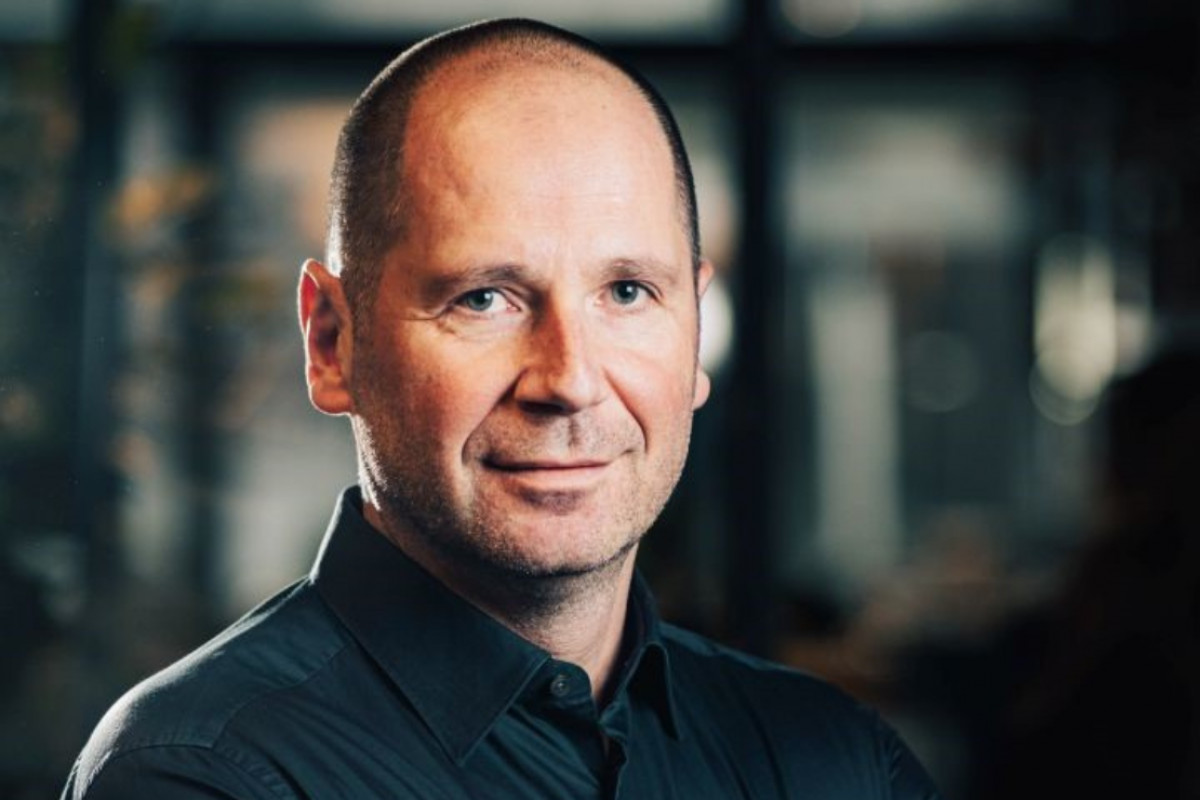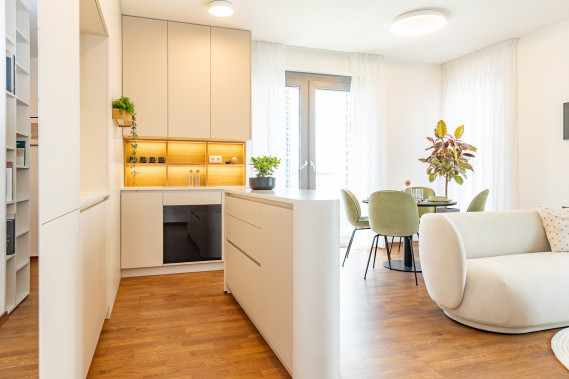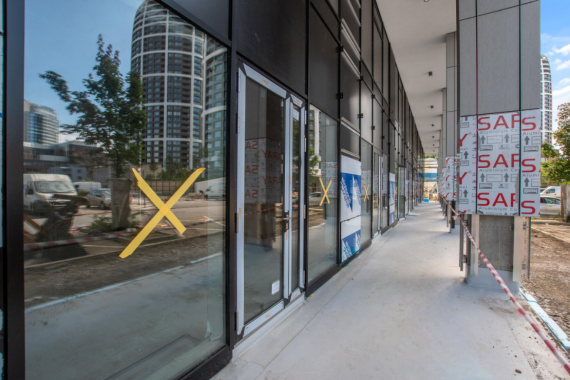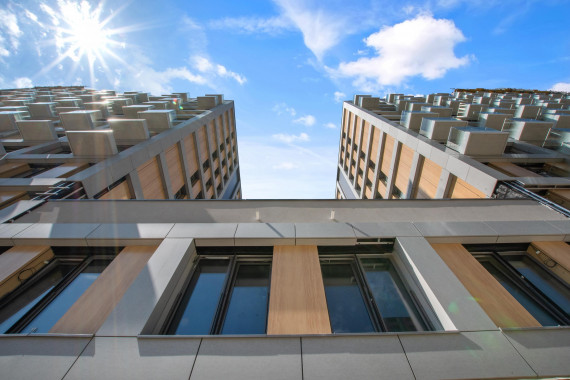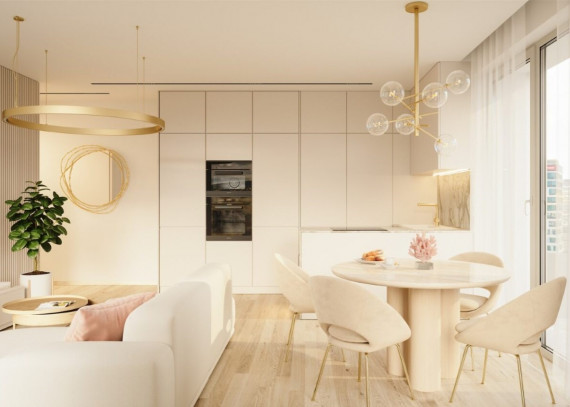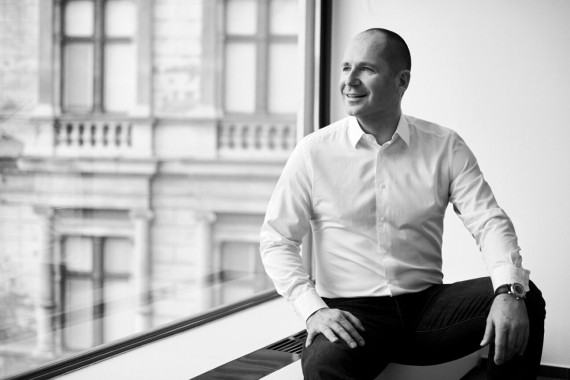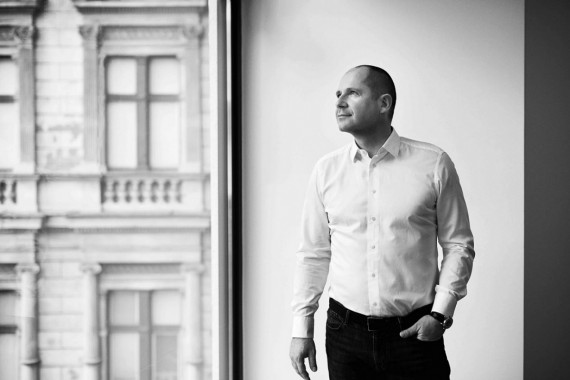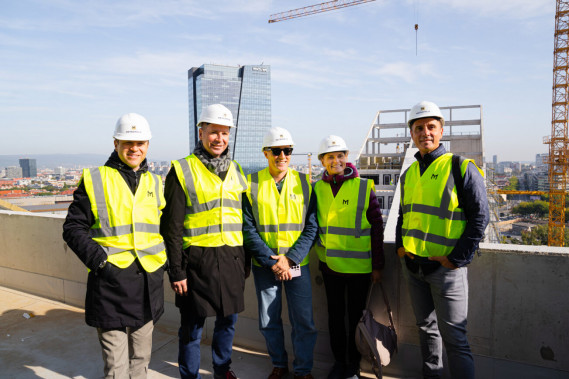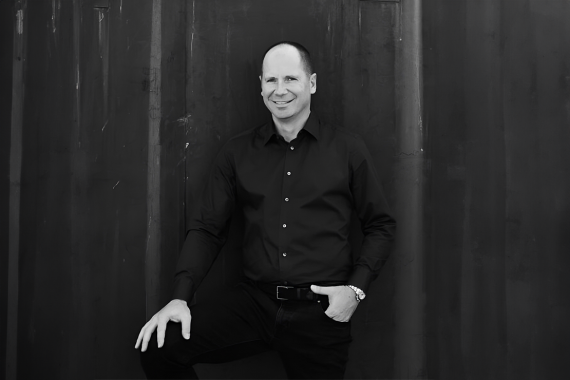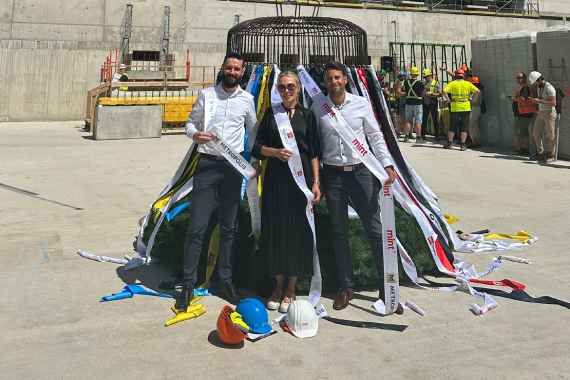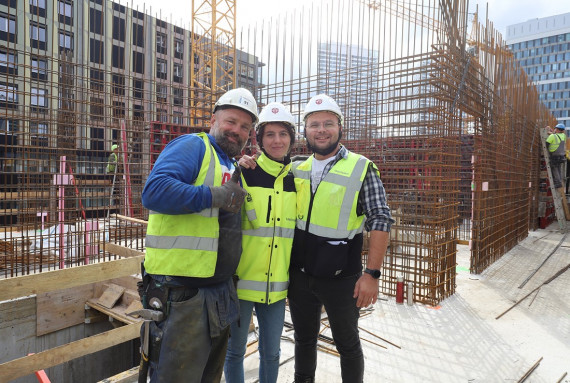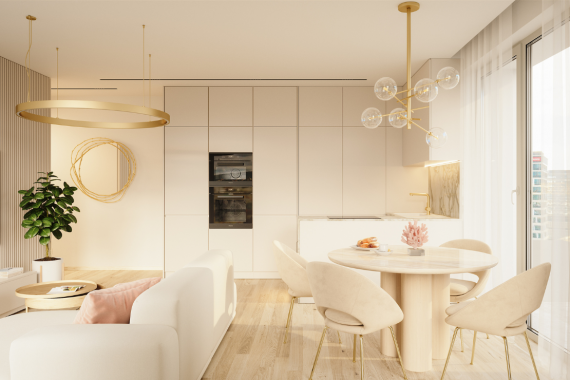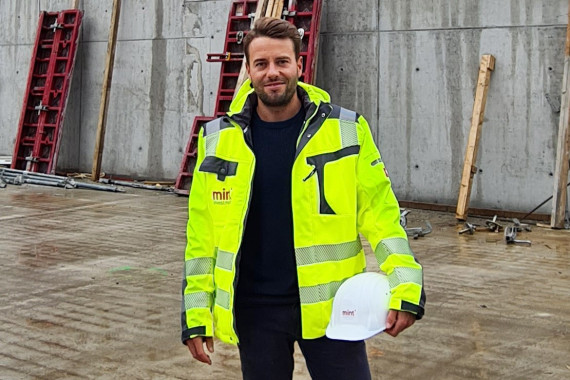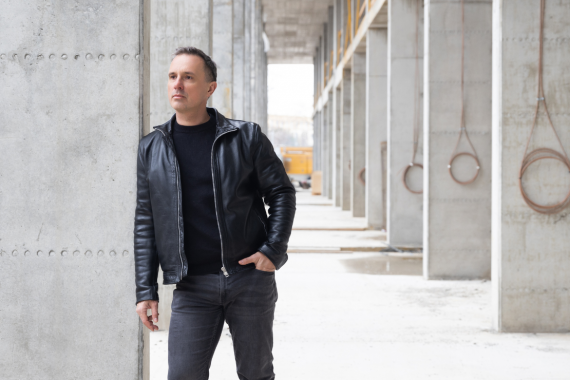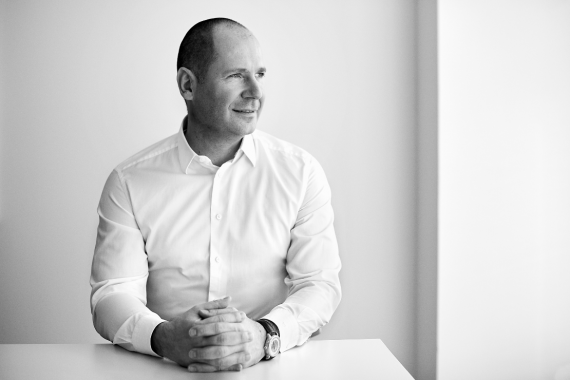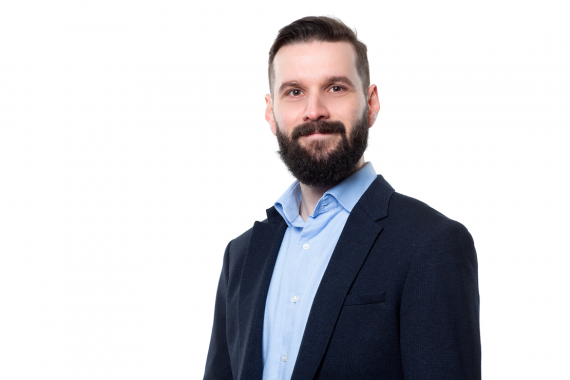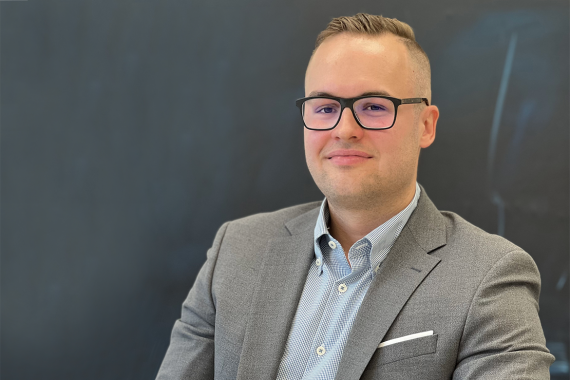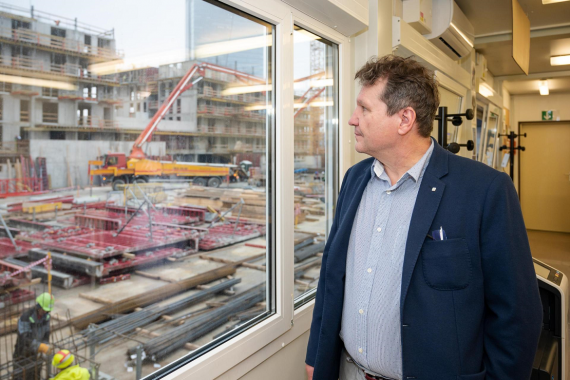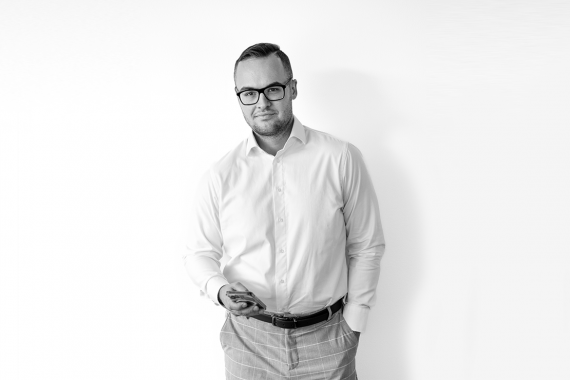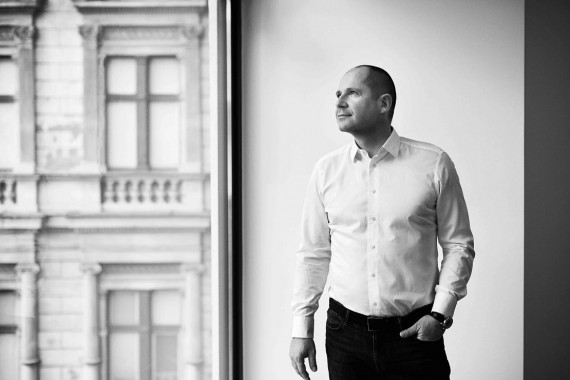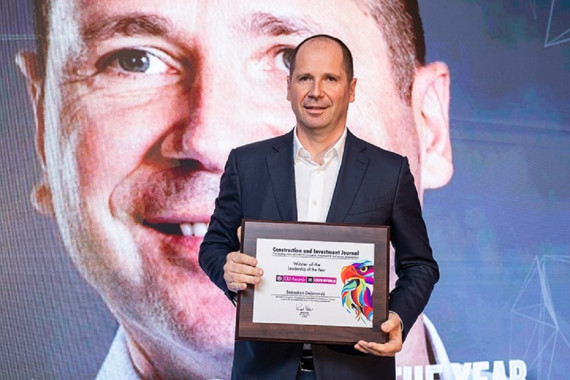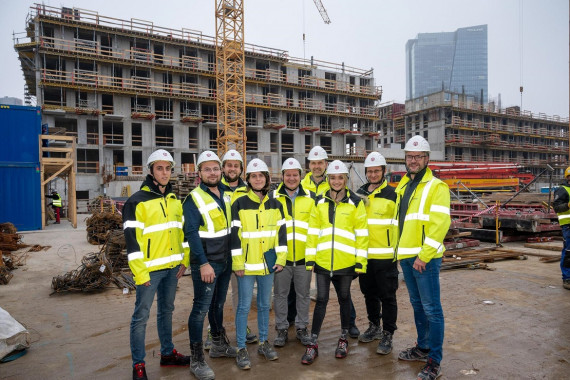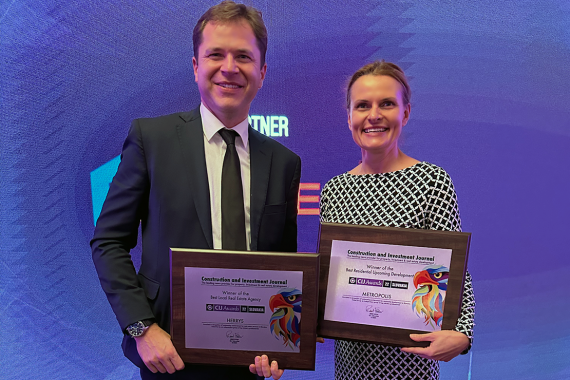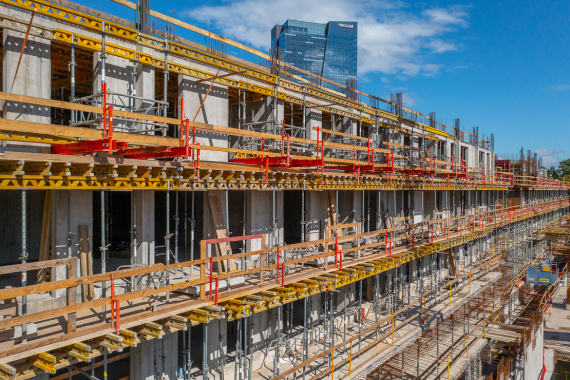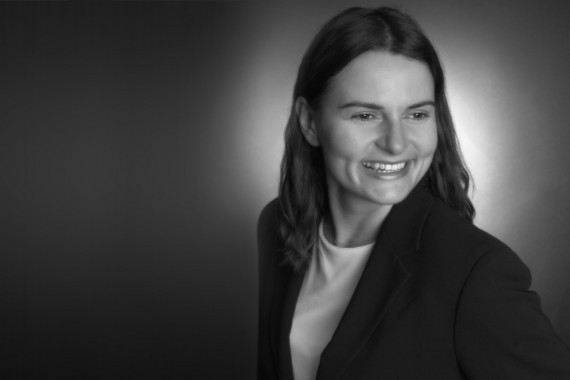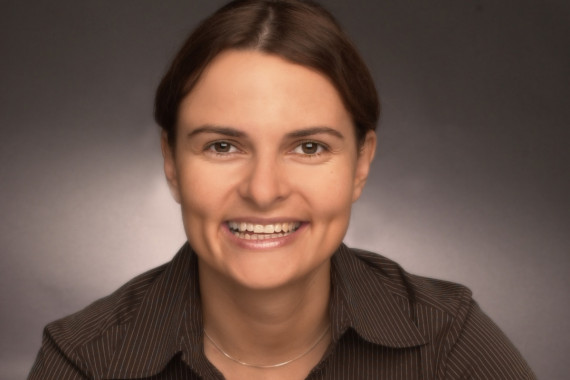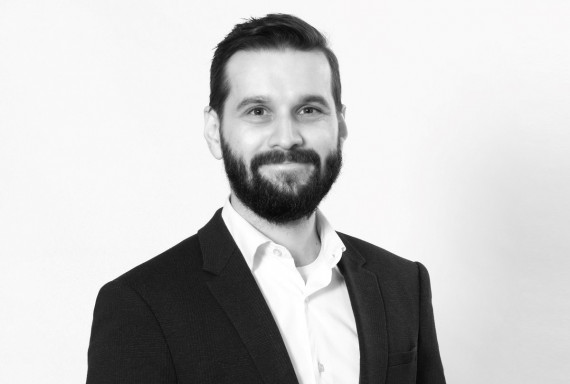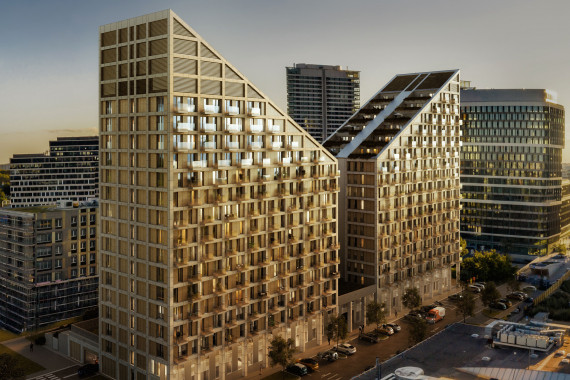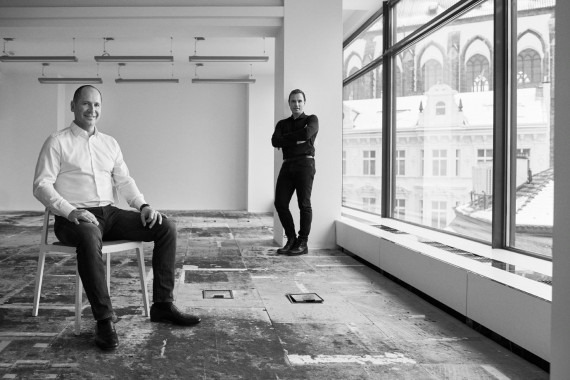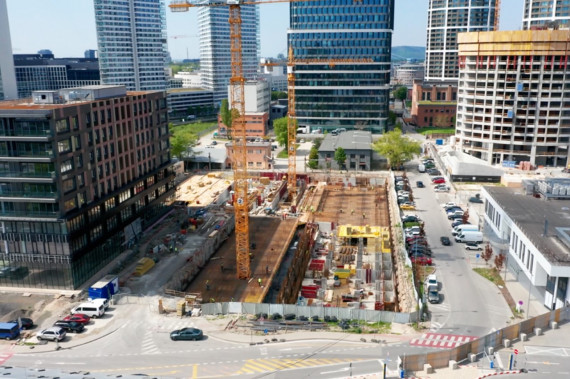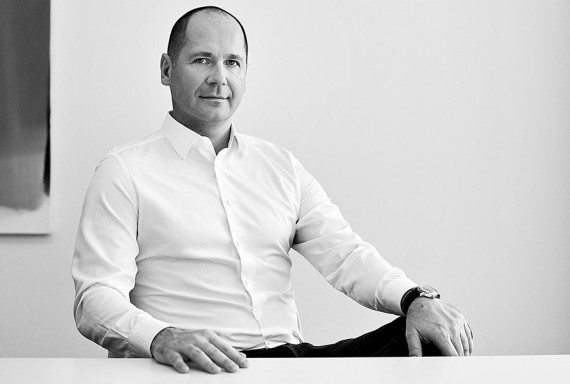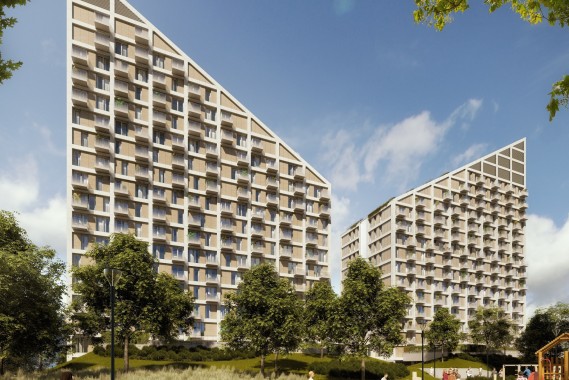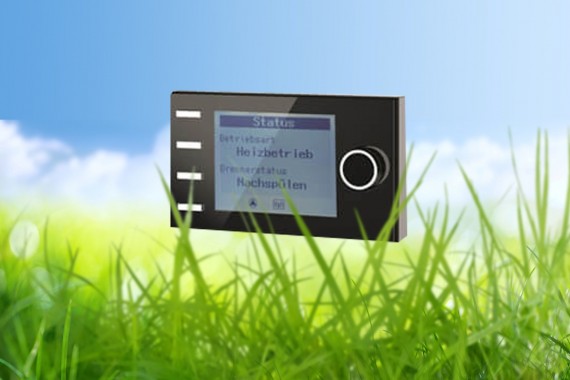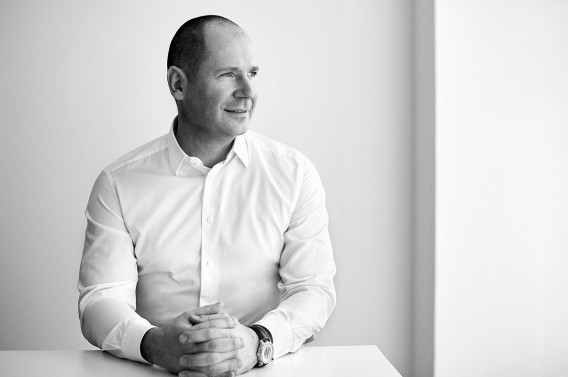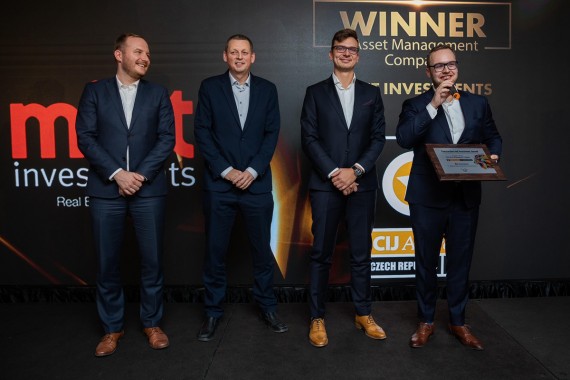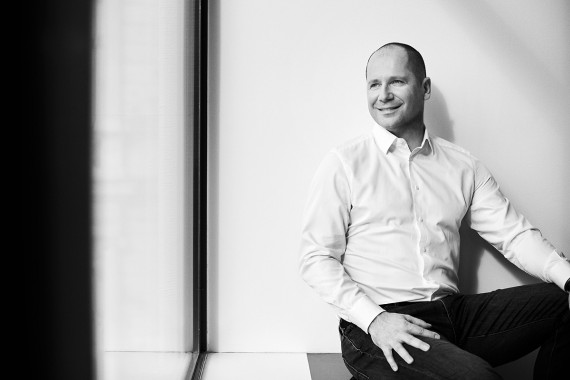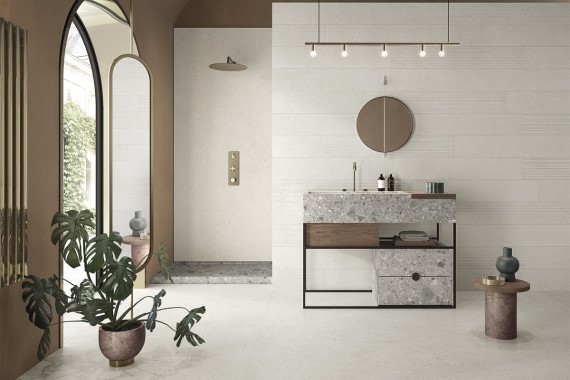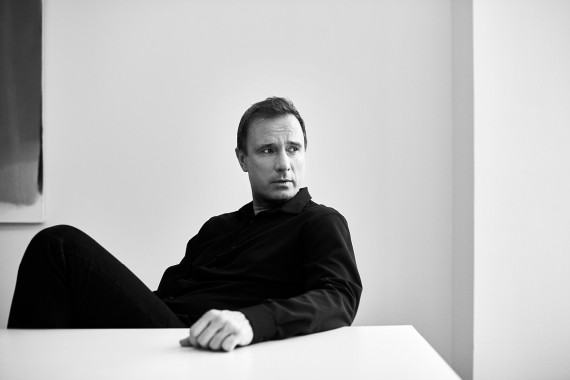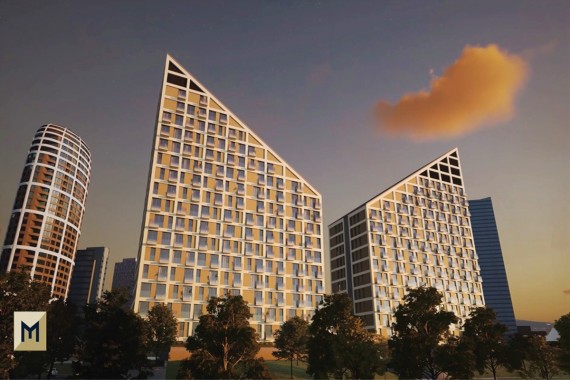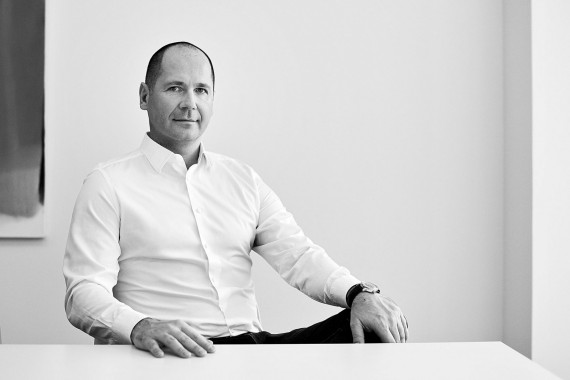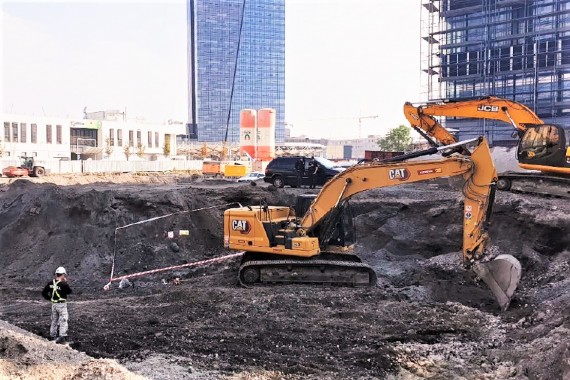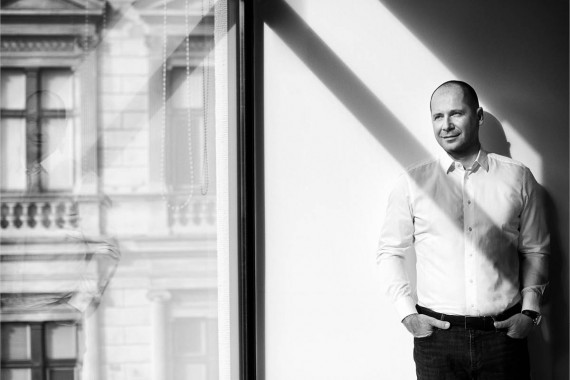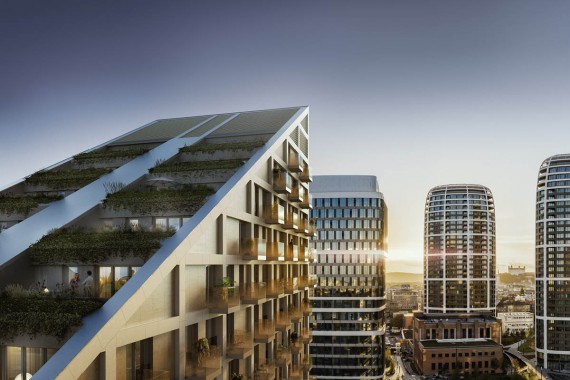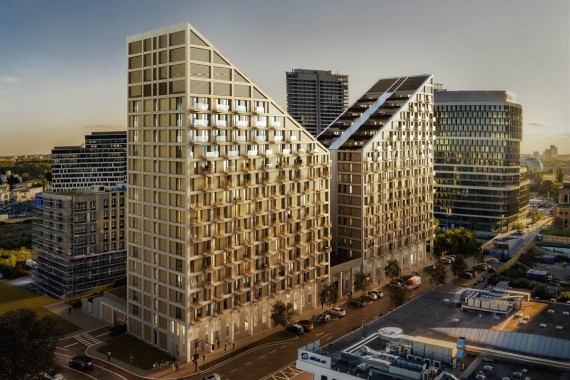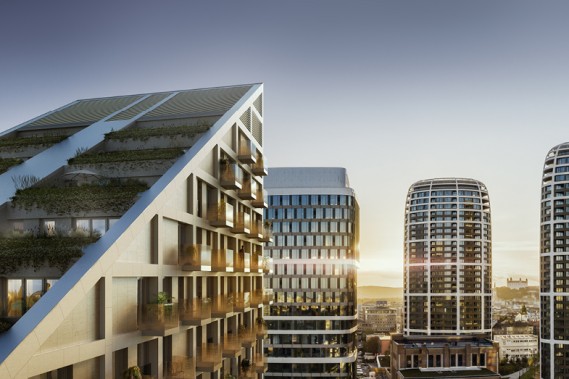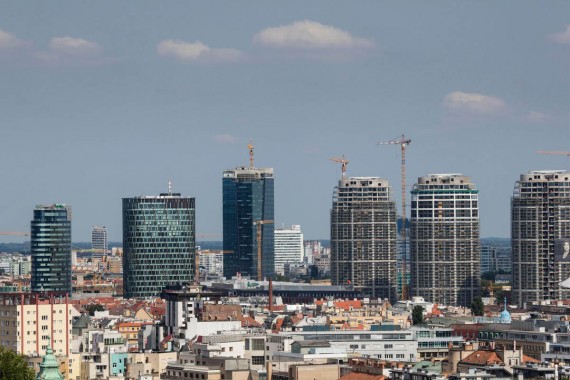Due to the war in Ukraine, uncertain market development, inflation and rising interest rates, the 2023 outlooks did not seem positive back in the last year’s winter. But January this year brought around a number of hopeful signals, especially from the ECB leaders, indicating that the 2023 economy in European countries may experience only a mild recession or even avoid one all together. The macroeconomic situation is viewed in a similar light by the developer Sebastien Dejanovski from Mint Investments, commenting on several “bright spots” in the real estate market. One of them is the Metropolis project in Bratislava’s downtown, where the developer is planning to complete the rough-in stage. In the interview you will learn about this year’s focus points at Mint and of the resolutions the business made on the new year.
What were the lessons you learnt last year?
The year 2022 was refreshing for us in many ways. We realised that we couldn’t rely on anything while at the same time we didn’t know what the future had in store for us. The world had become less predictable. Several changes, yes, we had anticipated, but none of us could have expected at the start of last year that inflation would be so prominent and interest rates would rise multiple times. It’s a great challenge.
Nevertheless, we have remained calm. We continue to work hard on the set goals, we move along with the trends. In the coming period, it will be more important than ever before to stick to your visions, because many people tend to get nervous during turbulent times and take rash decisions, something which we try to avoid.
On the other hand, what made you stronger the most last year?
We succeeded in several projects, for example the completion of the acquisition of an office project of 35 000 m2 in Prague, we brought to conclusion the acquisition of 100 rental apartments in Pilsen for an investment fund, and we are very pleased that the construction of Metropolis has been progressing according to schedule. We also appreciated the prestigious CIJ Awards, which affirmed us in the fact that the work we love doing we do very well. At the same time, it motivates us to constantly improve and grow.
What resolutions did Mint Investments make for 2023?
Similar ones to last year’s resolutions. Experience has taught us that a crisis is always a period that favours those who are more flexible, focused, and prepared. Therefore, this year we will continue to focus on our projects and develop in asset management, which is the core of our business. We will continue to work on our development projects according to the planned standard, because we want to build well and in quality. That’s the path we believe in.
The ECB indicates only a mild recession for Europe this year, but were a crisis to occur, what measures are you considering at Mint?
In the asset management segment, where we manage office projects for our investors as well as for us, we do not expect any need for crisis measures, because all of our projects have been well set up and also refinanced in recent years. As for the completed projects, there is always the biggest risk if interest rates increase over the course of a year, and you need to refinance in that same year. However, this does not apply to our portfolio.
On the other hand, in the case of development projects, it is also important what stage of development they are in. A problem can arise if the project is just before the start of construction during the period and concurrently has to reach a certain level of pre-sales in order for the bank to provide financing.
For these preventive reasons, we postponed the construction of a project that we had ready to start in the Czech Republic. There is no need to rush with this project.
Our developments that are under construction are in a completely different situation, as is the case, for example, of the Bratislava Metropolis. The pre-sale for this project has been fulfilled, the sale is appropriately spread over a reasonable period, we did not underestimate anything at the beginning, and we are actively working on the sales strategy. Since all the milestones have been satisfied, there is nothing to worry about.

Your security comes from a broad portfolio of activities allowing you to spread your risks well, thus potentially minimising the effects of a crisis.
Precisely. Our strategy has always been to spread the risk across multiple segments, whether it’s investing in office projects, residential real estate, or the commercial retail segment. We work with the financial resources of large international retail institutions, including private investors making investments with us in various projects via Mint – the residential fund. Spreading risk clearly helps us in this regard.
Naturally, if we were purely a development company, we wouldn’t feel so comfortable. Launching a new project in these times is almost impossible. Only a few very strong capital companies can afford to do so, but developers usually do not have such a strong background.
What will be the greatest 2023 challenge for Mint Group?
Two years ago, we began intensive education in ESG strategies, to which we devoted much time and financial resources. Just a few years ago, the ESG issue was unclear. However, today, as long as you are responsible, you are aware that without introducing the principles of these strategies, companies will find it hard to survive. It does not just concern management, but all people across the company. It is necessary to integrate a new way of thinking into the business in order for all staff adopt it. As part of the ESG philosophy, we have implemented many processes at Mint and want to continue to improve in this area. Progressively, all the buildings we manage will be subject to an ESG audit that will evaluate their current technical condition and their potential further develop in the future. We also support multiple charities like People in Need, and we are working on establishing cooperation with the Institute of Strategic Investments at the University of Economics.
Do you work with an external ESG consultant?
We cooperate with the international consulting company JLL, which has a very good team in the Czech Republic. Thanks to them, we have made a lot of progress in this issue. We are taking part in various seminars; our managers are handing on their know-how across all levels of the company to achieve compliance with ESG principles and our philosophy. It is very rewarding. It guides us towards considering new aspects of projects, whether it’s the environmental-based pursuit of sustainability and energy efficiency, or a social aspect relating to care for our people.
How is this knowledge reflected into your projects, for instance, in the new construction of Metropolis?
A specific benefit can be seen precisely in the efforts to achieve the highest possible economy and concurrently the highest possible standards for the comfort of future residents. We were counting on this from the very beginning of the project planning. In designing Metropolis, we inserted the code of energy efficiency and user comfort into its DNA. By doing so, we pre-determined it to become a conscientious project that will give meaning to its users over the long term.
What factors do you think will play a key role in housing decisions in 2023? Will location remain a key factor?
I think that the parameters of future housing that are important for the buyer do not change much. The location, the quality of the architecture, the quality of the standard as well as whether the given product resonates with the ideas of the potential buyer are still crucial. In future, the list of priorities will be dominated by the energy intensity of projects and their long-term operating costs.
Last year brought uncertainty in energy prices, heating, and cooling costs. People will remember this moment and become more aware of the added value of sustainable projects. They will be more interested in the details of the construction, who is the developer, what technology are included in the property and what it ultimately means for their final bills.

What development in construction costs do you anticipate?
The inflation that affects commodities has not yet been reflected in real construction costs. Most construction projects that were already under way counted on prices negotiated before the war in Ukraine. Currently, we do not know what the real situation will be like at the end of the day. We expect that construction costs will certainly not go down or return to pre-war levels. So for quality products, their price will continue to grow.
If construction costs were to escalate enormously, what solution do you have, for example, in the case of Metropolis?
We have everything contracted for this project in advance. The increase in prices, and thus also costs, has naturally affected us, but to a lesser extent than is the case with new projects that are still in their planning stage, which are to be started in the future. Developers today still don’t know exactly what the real costs are because the inflation of commodities has not yet really been reflected in them. For example, manufacturing tiles, especially the cheaper ones, is very gas-intensive because it uses large kilns, and will be more affected by price increases than the production of premium tiles. Therefore, for new projects that have not yet been launched, developers can today only guess their costs.
Those projects where construction is carried out with materials purchased at even older prices are at an advantage. A developer who has already sold enough apartments and meets the bank’s terms is in a much more comfortable situation than a developer who has to start construction now or in the future.
So, this year we can count on the completion of the rough-in construction of Metropolis as scheduled.
Yes, so far everything on the construction site is going according to plan. In the beginning, we had a slight delay, mainly because of the conflict in Ukraine. At that time there was a lot of instability and problems with the lack of some materials. But many were in the same situation. Since then, work on the project has been going smoothly. We are currently on the 11th above-ground storey. Of course, we don’t know what 2023 will bring, but unless some unexpected event happens, we should finish the rough-in construction already in the summer of 2023, and overall the project’s construction should be completed in the 2nd quarter of 2024.
What projects are you preparing in the near future?
We are preparing a large development project with 380 apartments in Prague, where we are waiting for the right moment to start marketing and constructing. At the close of last year, as part of asset management, we acquired a large portfolio from Amundi Czech Republic, for which we have already successfully managed another portfolio. This year we will focus on the opportunities that will come along in our markets, whether it may be residential development in Bratislava, or office projects and residential development in the Czech Republic. We have various resources for this, so this period will certainly be interesting for us.
So, are you expecting a diverse 2023 full of opportunities at Mint? What helps you see things positively?
We believe that today’s difficult situation will not last for years. The energy crisis will end, Europe will find an alternative gas supply solution independent of Russia, and electricity prices will gradually return to normal. And we believe in our markets and our people. Both the Czech Republic and Slovakia are still among the less indebted economies and at the same time among the countries with the highest growth in Europe. We have many educated and hard-working people, skilled professionals, economists, and IT engineers.
It will be important to find the right arguments for people and communicate them well. Internally, here at Mint, we are also endeavouring to support our employees by increasing their salaries this year. So that they know that we are thinking of them and that they are not afraid of the uncertainty that is in the air. We want to invest in our team and boost their confidence. We care about their development. In the end result, they are the ones who bring value to the entire Mint Investments. In the coming period, it will be important for companies to show stability and also behave in this way.
And it will be equally important to keep up efforts already commenced. In a rapidly changing world it will be crucial to be flexible and not afraid to make decisions. We will continue to work, invest, develop in the Czech Republic and Slovakia. We are at home here; we have our track record here.

